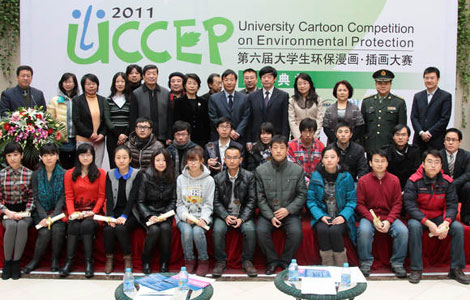BEIJING - A judicial interpretation will soon be introduced to clarify the rules in handling insider trading cases, according to an official with the country's securities and futures watchdog.
The interpretation will focus on the investigation and the burden of proof for such offenses, said Gui Minjie, vice chairman of the China Securities Regulatory Commission (CSRC) at a press conference Tuesday.
Judicial interpretations, usually given by the Supreme People's Court (SPC), are binding inside the country's court system.
An earlier document form the SPC in June had also addressed various issues concerning securities offenses in administrative lawsuits, in which a paragraph was dedicated to insider trading cases.
Tuesday's press conference, jointly held by the CSRC, the Ministry of Supervision (MOS) and the Ministry of Public Security (MPS), also revealed the information about the country's major insider trading cases since 2004.
The police have handled 50 major criminal cases of insider trading and arrested over 90 suspects so far, with more than 4.5 billion yuan ($713 million) involved, said Liu Jinguo, vice minister of the MPS.
Another 58 individuals have been put through administrative punishments in 31 cases, according to Gui Minjie.
Liu highlighted a few emerging trends in such offenses, among which the scope of suspects was expanding from corporate executives to government officials, as the latter often have access to critical information during the administrative examination and approval.
This notion was backed by Yao Zengke, vice minister of the MOS.
Yao noted that those suspected of insider trading include high-ranking officials of local governments and authorities, executives in securities companies and State-owned enterprises.
With the number of insider trading offenses increasing in recent years, Yao called for steady efforts to combat such activities.
"It's necessary to build an institutional line of defense in order to wipe out the source of insider trading," Yao said.










